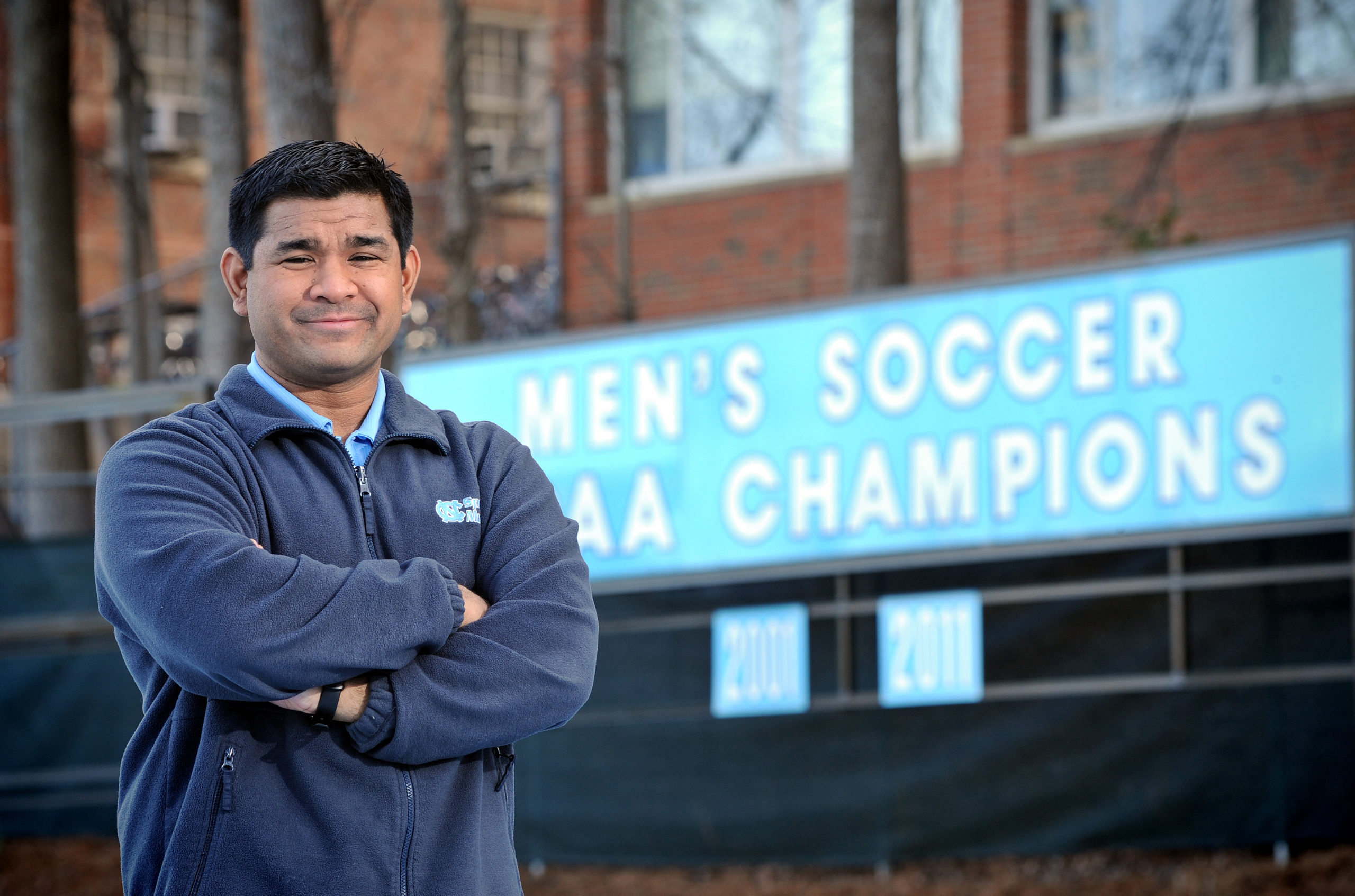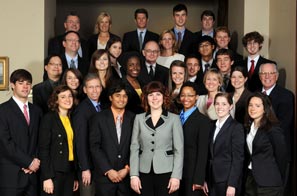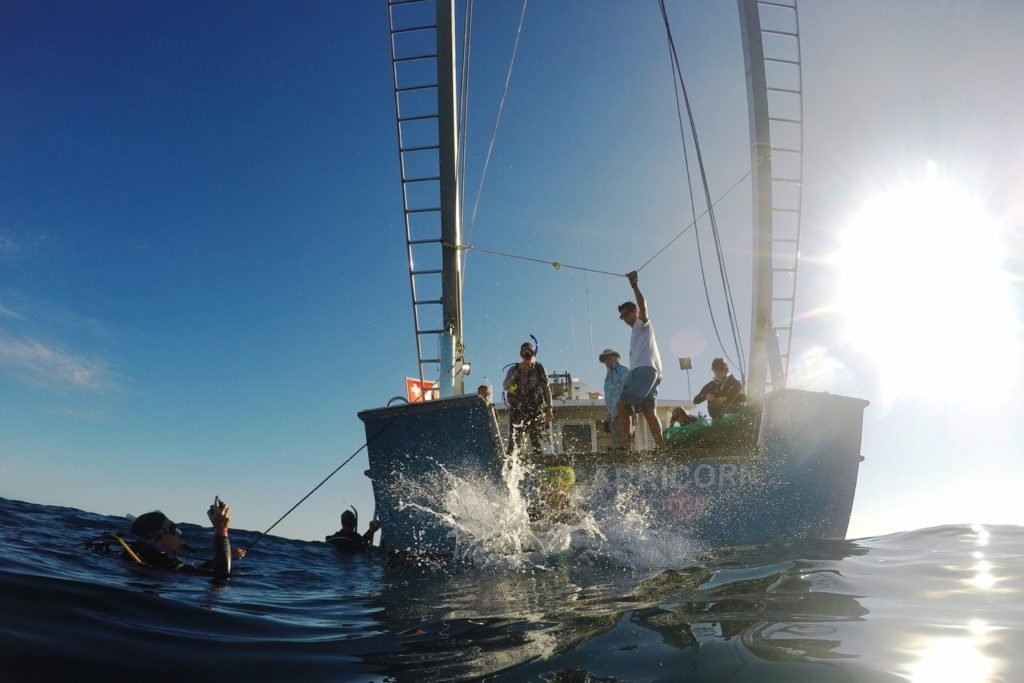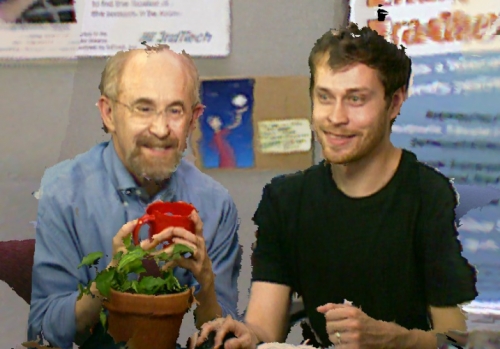
This past December, Tar Heels everywhere turned their eyes to the UNC men’s soccer team as it closed in on what would be its first NCAA College Cup championship in ten years.
But Alain Aguilar – lecturer in the department of exercise and sport science and athletic trainer for the team – was focused on the details. While others followed the ball up and down the field, he followed the ankles, hips and knees chasing it.
Aguilar and his athletic training staff spent the year with the players, combating strength imbalances and healing hamstrings. As the sole trainer traveling with the team in the post season, he stayed ready to assist with any injuries, soreness or muscle weakness that might get in the way of the Cup.
“I’d have ice baths ready for them. Once, we had no baths, so I found some clean trash cans and filled them with ice water.” Plunging their bodies into the ice water helped the players’ sore muscles recover faster, making it possible to play just as hard in the next game. He spent several hours on soft tissue massages and rehab exercises with the teammates who were not able to play. He shuttled to and from Costco when bottled water and Gatorade were low.
“I was there to do whatever I could to help. My goal is to help them win.”
The season was intense, and Carolina defeated Charlotte 1-0 to win the College Cup. But on any given day, before there is training or treating, there is teaching.
He also serves as director of the fitness professional concentration for his department. Aguilar, who moved to North Carolina from Ohio and earned his master’s degree from the department in 2006, guides students in the exercise and sport science track who plan to specialize in careers that focus on health, fitness and wellness. The program focuses on strength and conditioning, performance enhancement, hands-on training and practical classes where students apply the science they’ve learned.
“It can be a little like having two full-time jobs,” he says. “But I like sports, science, medicine and helping people. It works.”
Experiences mentoring high school students through Young Life, as well as the time he spent recovering from his own torn anterior cruciate ligament, dovetail nicely into the two roles he serves for UNC.
“Many college kids are away from home for the first time, and I’ve had the chance to build relationships with my players and students and, I hope, be there for them if they need it.”
[Story first appeared as part of UNC’s Meet a Tar Heel profiles, and was later used in the University Gazette.]



